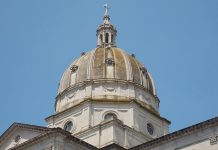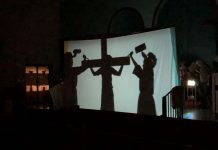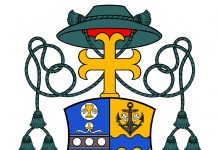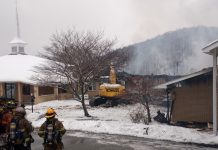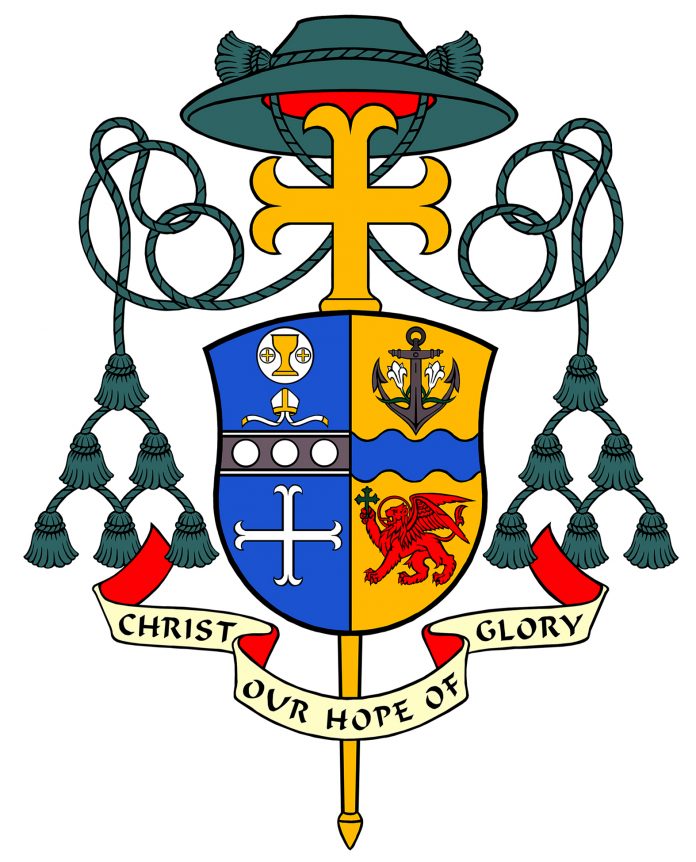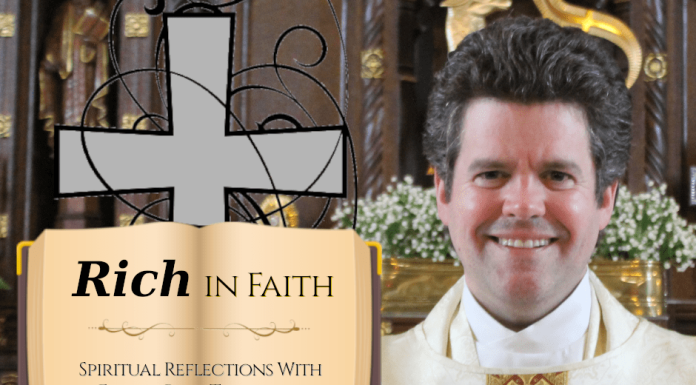The Governor’s Office recently announced the relaxing of some state mandates that have been in place during the COVID-19 pandemic. And the Centers for Disease Control (CDC) has indicated that it may be possible to ease some of the restrictions that have been in effect in public places, shopping venues, and businesses.
Throughout the COVID-19 pandemic, safety measures were adopted for the celebration of the sacraments, religious education, and social events in the Diocese of Altoona-Johnstown. These measures were utilized in view of the pastoral good of parishioners, the circumstances of parish communities, and the common good. All are commended for their efforts.
The response to COVID-19 was based on the scientific expertise that has been provided by the CDC, the PA Dept. of Health, and others. The scientific understanding of the nature of the virus; the manner in which the virus is able to spread; and the methods needed to treat or prevent infections has been ongoing.
Development and distribution of vaccines has occurred in record time. The learning curve is ongoing, and these developments have impacted the responses to the pandemic within the Diocese of Altoona-Johnstown.
People from across the diocese have expressed their appreciation for various safety measures (e.g. wearing masks, social distancing, use of sanitizers, etc.), without which they would have not attended Mass in person. Many persons are grateful for the opportunity to be vaccinated.
The observance of these safety measures has been of real benefit. At the same time, health experts are indicating that certain precautions should continue to be observed, even as some may be reduced or removed altogether.
Before enumerating updated directives, it is important to remind everyone of the responsibility that we have for ourselves and for the care and well-being of others with whom we interact at home, at work, while shopping, and even when we gather for prayer and worship in our parishes.
As indicated by health experts, if you are able to be vaccinated against COVID-19, you are strongly encouraged to do so for the sake of your health and others. Even though it is no longer mandated, individuals may wish to continue wearing a mask when they gather with others in their parish for Mass or other activities. This may be the case for persons with chronic health issues and those who simply want to be extra-careful.
Where We Are Headed
After consultation with the Presbyteral Council, the Deans of the Diocese of Altoona-Johnstown, public health officials, and other advisors, the following directives are issued for the celebration of public Masses (and other liturgical rites celebrated in churches/chapels) within the Diocese of Altoona-Johnstown.
These updated directives are intended to correspond with the recent directives issued by the Governor’s Office and CDC guidelines according to the presumed vaccination of a greater number of persons. Some of them are new and some are continued best practices that remain in place, either as a directive or a recommended protocol.
Many pastors are reporting a significant increase in the numbers of people who are returning to Mass in person now that they have been vaccinated.
While restrictions are being eased, the dispensation from the obligation to attend Sunday and holy day Masses remains in place. For this reason, parishes are encouraged to continue livestreaming Mass as an option wherever feasible.
It is anticipated that all the dioceses in Pennsylvania will end that dispensation at the same time; probably after the summer season is over. This is to allow persons to become more comfortable with attending Mass in person. Some persons are uncertain and others have a serious concern, especially due to personal health issues or the concern they have knowing that a family member or friend has been infected with COVID-19.
With that in mind, parishioners who have not been attending Mass are encouraged to begin again. Maybe the first time back could be a weekday Mass with fewer people. It could also be a time to attend a different Sunday Mass than the usual time an individual or family attended prior to the pandemic.
Parishioners are also encouraged to make use of the sacrament of Penance/Reconciliation. For many, it has been awhile since they last received the sacrament. In addition to providing forgiveness of sins, it is called a sacrament of healing, confession, and conversion (Catechism of the Catholic Church, n. 1420-1424).
The old saying, “confession is good for the soul,” is appropriate in our time. One’s sins and the impact that this time of COVID-19 has had on a person mentally or spiritually can and should be brought to the sacrament. It is a place to find a fresh start or to regain one’s spiritual balance.
The accompanying Updated Directives/Protocols are to be followed in implementing a general return to Mass and the reception of the sacraments.
Updated Directives/Protocols
The following directives/protocols take effect with the vigil Mass for the Solemnity of Pentecost, that is, the evening of Saturday, May 22, 2021.
These directives/protocols pertain especially to liturgical celebrations within a church. However, they apply to other functions (e.g. Bible study groups, prayer groups, faith formation programs and activities, dinners, festivals, bingo, etc.) with necessary adaptations.
Common sense should apply and each person may continue to observe precautions that are no longer mandated. This may be the case for those who are waiting to be vaccinated.
Questions concerning these directives/protocols should be brought to the attention of the Vicar General or the Bishop.
Masks
· Individuals, including priests, deacons, and liturgical ministers are no longer required to wear masks when in church or other church facilities.
· Pastors and parishioners should respect the return of others to regular worship at Mass and other liturgical and non-liturgical functions. No one should inquire of anyone as to whether or not they are vaccinated.
· Those who are not fully vaccinated are strongly encouraged to wear masks while in church, both for their protection and that of others.
· Parents should make an informed decision about whether their children participating in liturgical ministries need to continue wearing masks.
· Parishes should have a supply of disposable masks available for individuals who need one.
· Persons who are feeling ill should stay home.
· Masks are recommended when a priest, deacon, or extraordinary minister brings Holy Communion to shut-ins, especially when it is known that the recipient is ill.
· Parents should make an informed decision about whether their children participating in school Masses need to continue wearing masks.
Seating Arrangements
· The use of all pews in churches is now permitted.
· Spacing between pews is discontinued.
· The practice of reserved seating at Mass is discontinued.
· Choirs may be seated together in their usual place.
· Altar servers, lectors, song leaders, and musicians may be seated in their usual places as they resume their functions within the church.
Sanitizing/Cleaning
· Wiping/sanitizing pews and other hard surfaces in between Masses is discontinued.
· Hand sanitizer is to be available at the church entrance for parishioners.
· Hand sanitizer should be available for use by clergy and extraordinary ministers in the sanctuary and near the places where Holy Communion is distributed.
· Hand sanitizer should be available for use by the people as they approach to receive Holy Communion.
· Church cleaning should return to regular protocol. Those who are responsible for cleaning should utilize disposable gloves and sanitizer for their individual safety.
Worship Aids and Various Liturgical Actions
· Hymnals and other worship aids may be placed in the pews.
· Holy Water is permitted to be placed in the font(s).
· Entrance and closing processions are now permitted.
· A verbal exchange of the sign of peace is permitted among the faithful.
· Collection baskets may once again be utilized.
· Although the Holy Eucharist continues to be offered at Mass, the distribution of the Precious Blood to the faithful is not permitted.
· Clergy are to receive Holy Communion by intinction when concelebrating.
· Clergy and extraordinary ministers should use hand sanitizer before distributing Holy Communion.
· The faithful are recommended to receive Holy Communion in the hand. However the right to receive on the tongue is to be respected.
· The faithful are encouraged to sanitize their hands before and after receiving Holy Communion.
· Clergy and extraordinary ministers, at their discretion, may continue wearing masks when distributing Holy Communion.
· Permission remains in effect for priests to trinate on Sundays and Holy Days of Obligation and to binate on weekdays.
· The use of confessionals is permitted. If there is inadequate ventilation within the confessional, priests may arrange for another space in the church for hearing confessions.
· Clergy may greet the people before or after Mass, but should refrain from shaking hands.
Protocols approved by Bishop Mark L. Bartchak on May 19, 2021.



